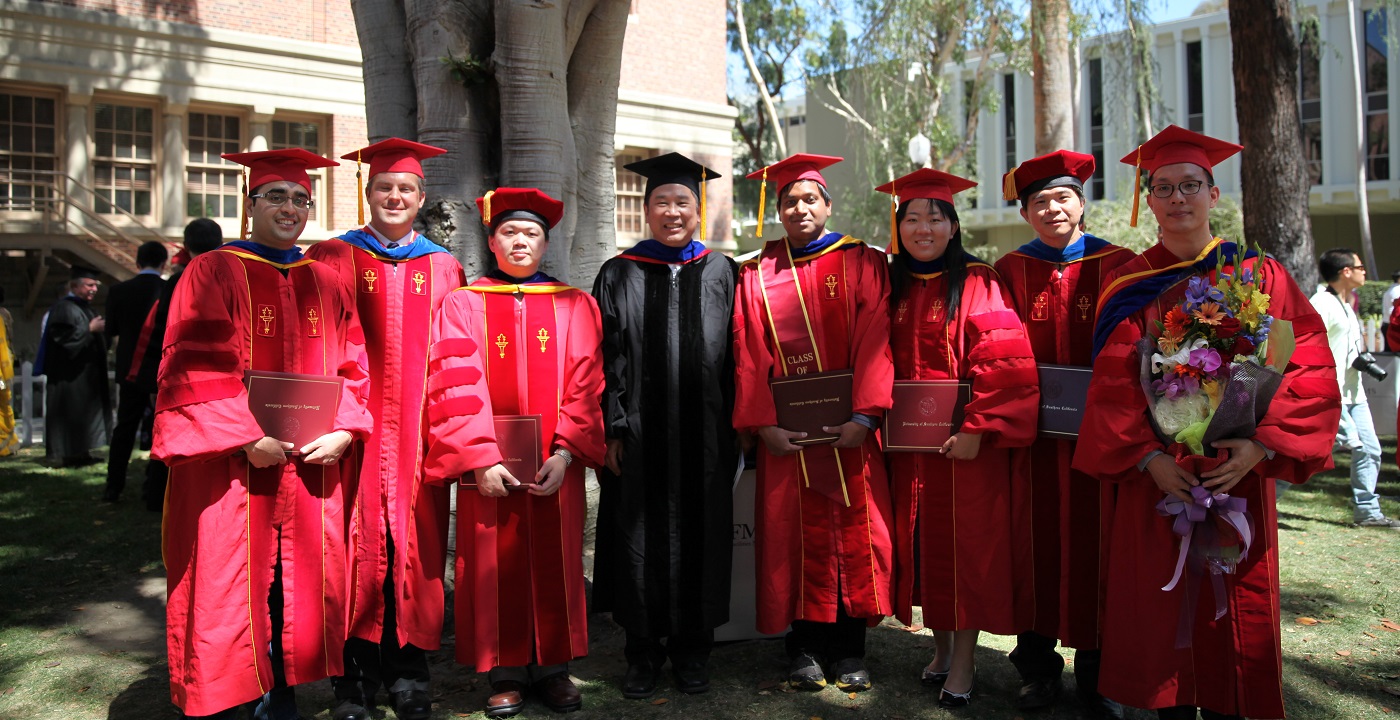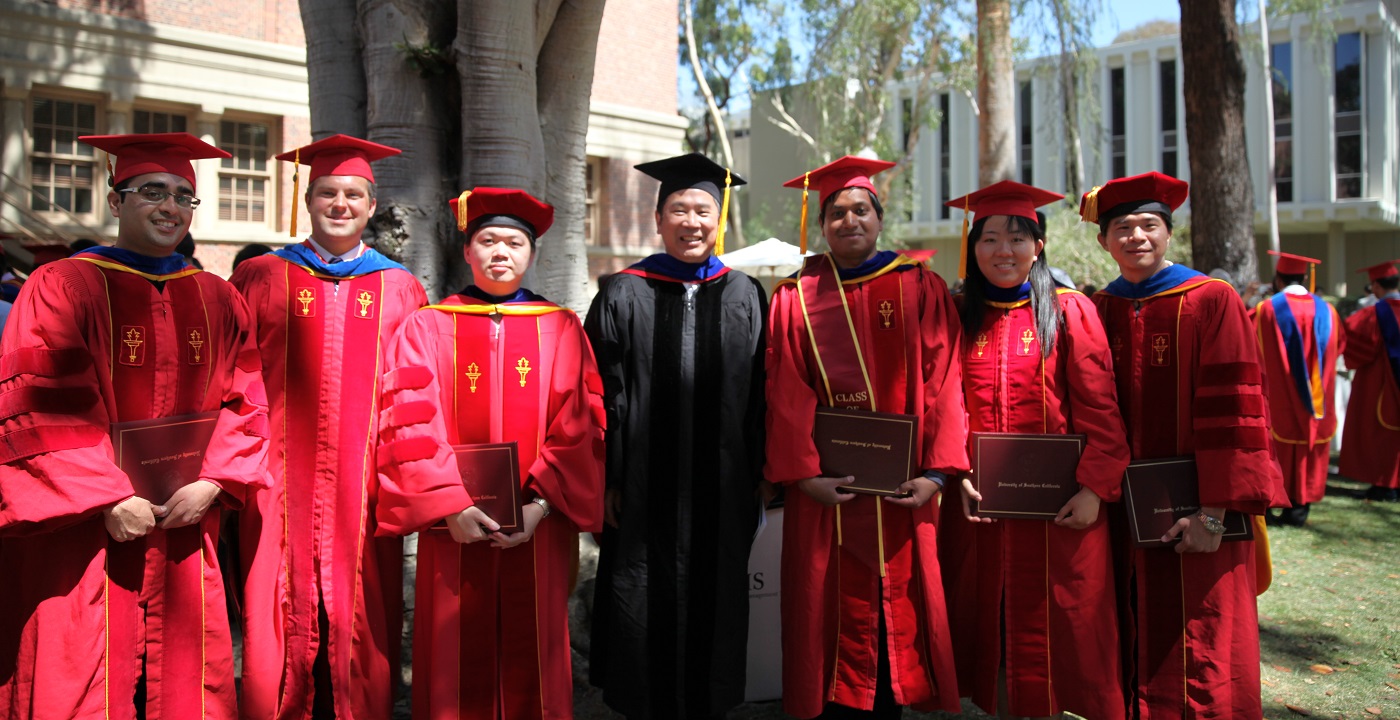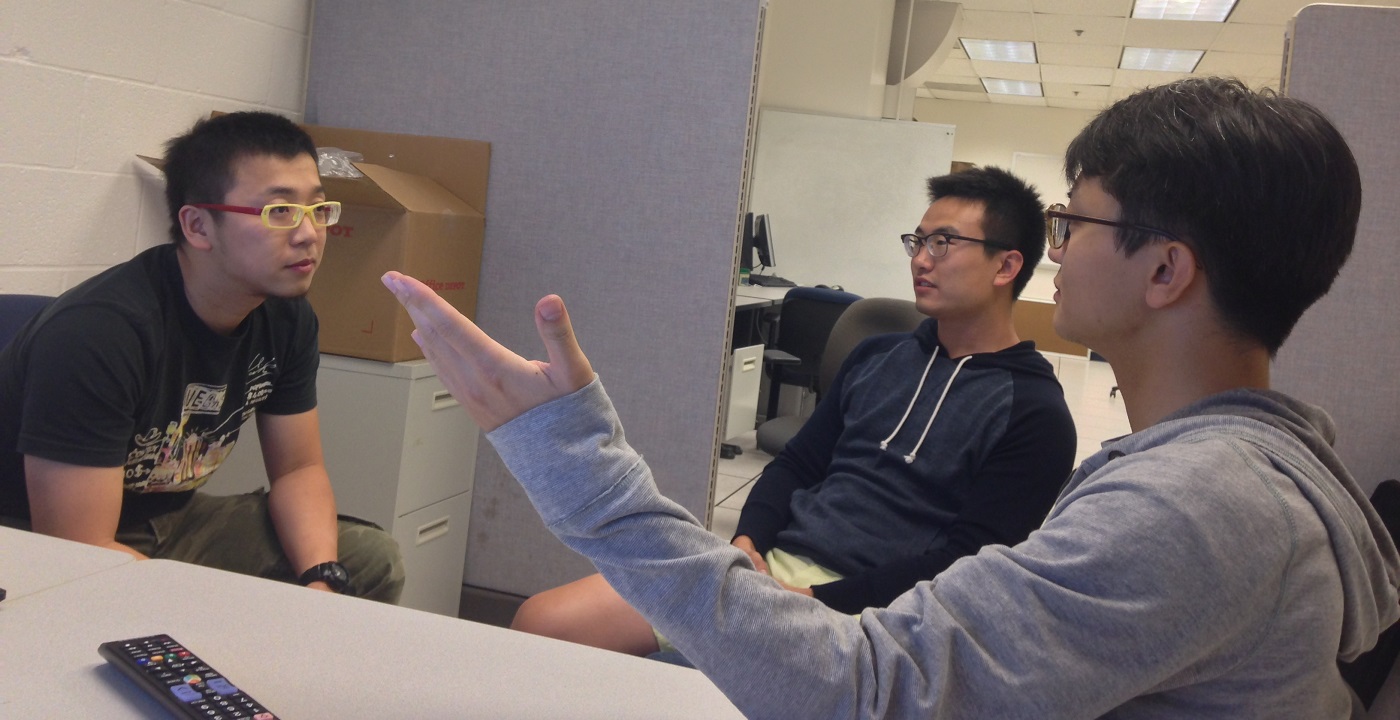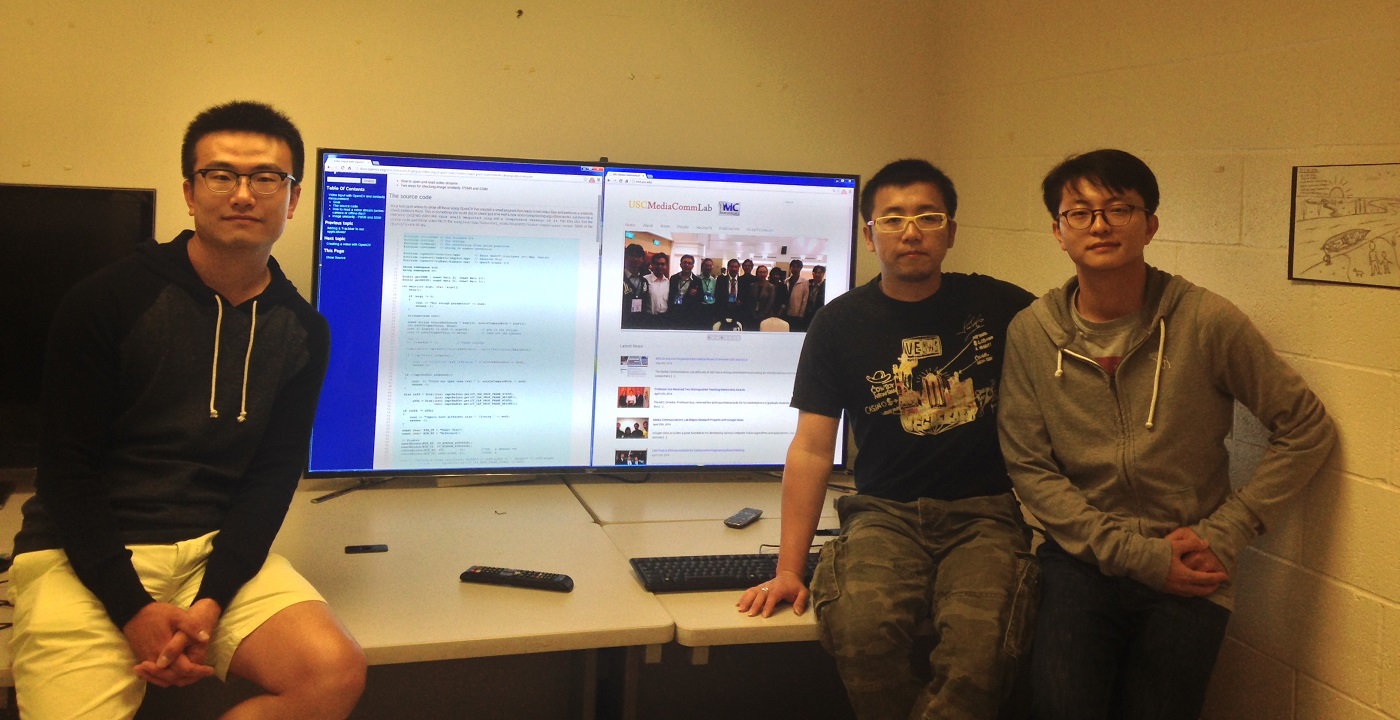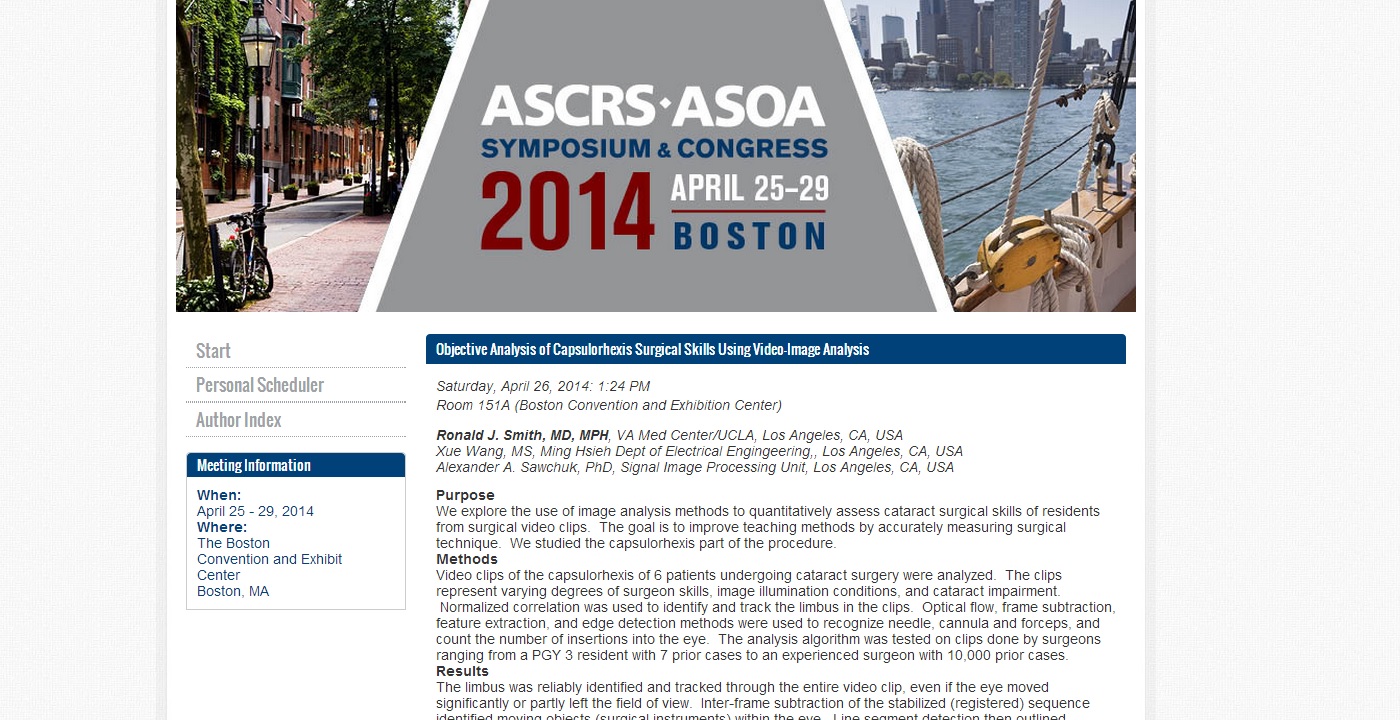MCLab Releases the New 3D Database: MCL-3D
Stereoscopic image/video contents have become popular nowadays. Since the multi-view image format is costly for visual communication, the 2D-image-plus-depth format is proposed as an alternative, where a texture image and its associated depth image are recorded at a view point simultaneously. For stereoscopic display, the depth image-based rendering (DIBR) technique is applied to the texture and depth images to generate the proper left and right views.
One critical issue regarding 3D-related applications is to develop a robust metric to assess the quality of 3D image (or video) stimuli. Although a good stereoscopic image quality assessment is much in need due to the emergence of 3D visual contents, most of stereoscopic image databases are still small and based on traditional stereo image format, that is, captured left and right images. This restricts the design of good objective quality metrics.
To tackle these limitations and facilitate the related research, MCLab has released a new 3D image database recently, which is called MCL-3D. This database is valuable for the following reasons. Firstly, the MCL-3D database adopts the 2D-image-plus-depth source, where stereoscopic images are synthesized by the DIBR rendering technique. Secondly, all stereo images in the MCL-3D database are of high resolution, which is closer to today’s real world applications. Finally, the database is downloadable online with the detailed description of the database generation and the corresponding subjective test. We hope that our MCL-3D database can help other researchers in developing a good quality assessment metric.
Download link: https://mcl.usc.edu/mcl-3d-database/



